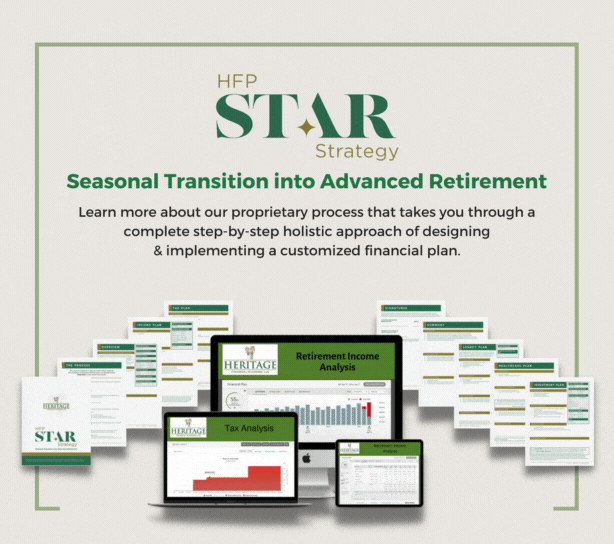Because everyone wants to gain greater peace of mind in their golden years.
For many retirees, financial stability can be a challenge, especially in times of rising costs and economic uncertainty. Fortunately, there are several strategies and programs that older adults can leverage to ease financial pressures. Here’s a look at some key ways retirees can reduce financial stress and make the most of available resources.
1. Medicare Assistance Programs
Healthcare expenses can be overwhelming in retirement, but Medicare has several programs designed to provide extra help for those with limited incomes.
-
Medicare Savings Programs (MSPs): These programs help low-income Medicare recipients cover premiums and out-of-pocket expenses, like deductibles and copayments. There are four types of MSPs, each with different eligibility requirements, but they all offer critical financial relief.
-
Extra Help with Prescription Drugs: For Medicare beneficiaries with limited income and resources, the Medicare Extra Help program can provide assistance with prescription drug costs. This program helps reduce monthly premiums, deductibles, and copayments for medications.
If you’re a Medicare beneficiary facing high healthcare costs, check to see if you qualify for one of these programs.
2. Energy Assistance
Heating and cooling expenses can make a significant dent in a retiree’s budget. Thankfully, the federal Low-Income Home Energy Assistance Program (LIHEAP) offers grants to help eligible households manage their energy bills.
-
LIHEAP: This program provides financial assistance for home heating and cooling. Each state has different eligibility criteria, so it’s worth checking the specifics in your area.
-
Weatherization Assistance Program (WAP): WAP helps older adults lower their energy bills by making their homes more energy efficient. The program offers services like insulation and window repair, which can lead to long-term savings. WAP is available to renters as well as homeowners, so even if you live in a multi-family complex, you may still qualify.
3. Wireless or Home Phone Bill Assistance
Staying connected to loved ones and essential services is crucial for older adults, yet phone bills can quickly add up. The Lifeline program helps eligible low-income households by providing discounts on wireless or home phone services.
-
Lifeline Phone Discount Program: This program offers a monthly discount on phone services, which could come as reduced wireless minutes or a lower monthly bill. Eligibility is based on income or enrollment in programs like Medicaid or Supplemental Security Income (SSI).
By reducing phone costs, Lifeline can help retirees keep more of their income for other essential expenses.
4. Housing Assistance
Housing is one of the biggest expenses for retirees, especially for those who are still paying a mortgage or rent. The U.S. Department of Housing and Urban Development (HUD) offers several resources to help retirees manage housing costs and stay in their homes.
-
HUD Assistance Programs: HUD provides various types of housing assistance, including help with finding affordable rentals, subsidies for low-income housing, and home modification programs. Retirees can also access HUD-sponsored counseling for issues related to foreclosures, evictions, and credit concerns.
If housing costs are a source of stress, exploring HUD programs could provide needed relief and help you remain in a stable living situation.
5. Food Assistance
Rising grocery prices make it harder for retirees on a fixed income to keep up with food expenses. Food assistance programs can help ensure that older adults have access to nutritious food without breaking their budget.
-
Supplemental Nutrition Assistance Program (SNAP): SNAP, formerly known as food stamps, provides eligible individuals with an Electronic Benefits Transfer (EBT) card, which can be used to purchase food at most grocery stores and even some farmers markets. The average monthly benefit for a one-person senior household is about $118.5, which can make a substantial difference in managing food costs.
If you’re finding it difficult to afford groceries, SNAP is worth considering as a way to stretch your food budget.
6. Consider Part-Time or Full-Time Employment
Working in retirement has become more common, with many retirees choosing to re-enter the workforce to supplement their income. Even part-time work can help cover expenses and reduce financial stress.
-
Job Skills Checkup Tool: For retirees interested in re-entering the job market, the National Council on Aging (NCOA) offers the Job Skills Checkup tool. This tool provides tailored resources for older adults looking to find job openings, build a network, and prepare for interviews.
-
Job Boards and Networking: Many job boards now specialize in positions for mature workers, and attending job fairs or using online networking platforms like LinkedIn can also open doors to part-time or flexible job opportunities.
Final Thoughts
Financial stress during retirement can be daunting, but there are resources and strategies available to help older adults make the most of their income. Programs like Medicare Savings, LIHEAP, Lifeline, and HUD housing assistance can provide essential support for those who qualify, and food assistance programs like SNAP can make a meaningful difference in covering basic needs.
In addition, part-time employment offers both financial and social benefits for retirees looking to stay active and earn extra income. By exploring these options and taking advantage of available benefits, retirees can reduce financial stress and gain greater peace of mind in their golden years.
At Heritage Financial Planning, our HFP S.T.A.R. Strategy is designed to help retirees navigate these challenges with confidence and clarity. By aligning your financial goals with a comprehensive, values-based approach, we provide tailored solutions to reduce stress and empower you to make informed decisions. Don’t wait to take control of your financial future—contact our office today to schedule an appointment and discover how our HFP S.T.A.R. Strategy can help you achieve greater peace of mind in retirement.

Click here to learn more about our HFP STAR Strategy process.
Source: Copyright © 2024 FMeX. All rights reserved. Distributed by Financial Media Exchange.











